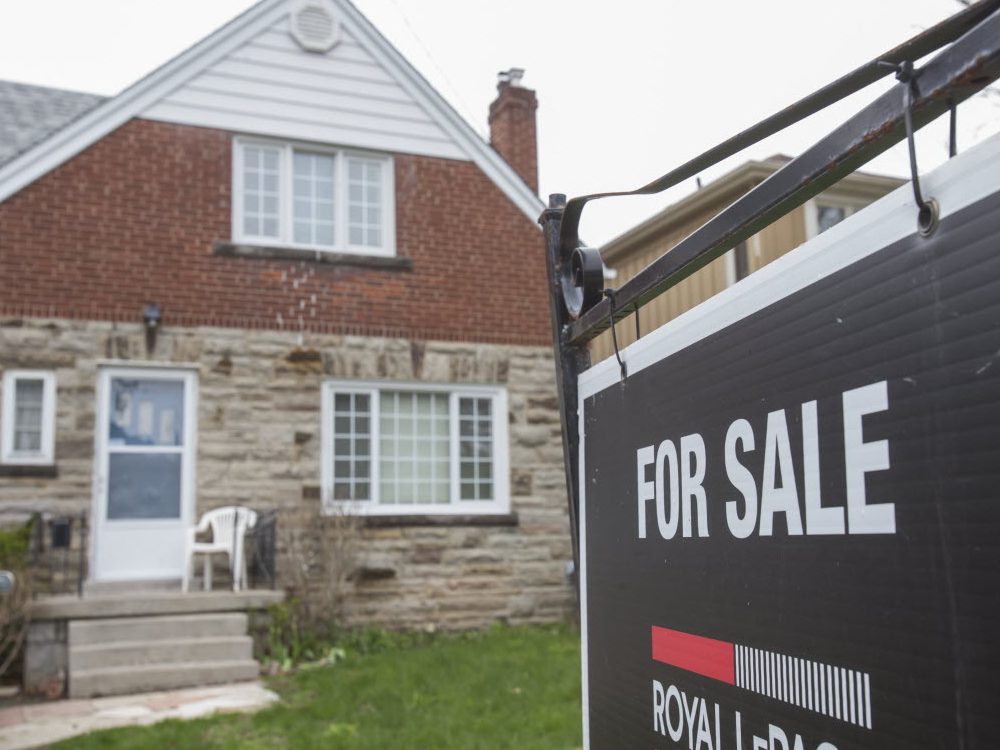Less than a month ago, we were receiving a steady stream of real estate flyers in our door, proclaiming that homes in the neighbourhood and well beyond had sold for up to 115% of the listing price.
Then the COVID-19 pandemic hit Toronto with a vengeance.
The flyers have disappeared — as have real estate signs — during what is supposed to be a peak selling season.
One could say the Toronto real estate market has gone from resoundingly healthy to bordering on static in a matter of weeks.
The latest statistics from the Toronto Regional Real Estate Board (TRREB) show that home sales were actually up 49% during the first two weeks of March (considered the pre-COVID-19 period) compared to the same time last year.
But during the last two weeks of March (starting on March 15) sales were down 15.9% compared to the same period last year.
New listings mirrored that trend with listings down in the last half of last month by 18.4%.
It is interesting to note that the average selling price in the Toronto area was still holding its own during the last half of March — at $862,563, up 10% from the same period last year.
Jason Mercer, of TRREB, told me Friday the first two weeks of March were in line with what they saw in January and February — a strong market and near-record sales.
Once the social-distancing rules were put in place and the call by their board to realtors to shut down open houses, those in the industry started to see a “greater impact” on the market.
“It was definitely a tale of two halves in March,” he said, noting that sales and listings really dropped off in the last week of the month.
Mercer said they’re still waiting to see the impact on a “more stabilized basis” of the lack of open houses and in-person showings.
“I think April is going to be a telling month in terms of what we see in the short-term,” he said.
While they have seen an “uptick” in the extension of listings, he said it’s too soon to tell whether sales have fallen through before closings because it typically takes 60-90 days for a deal to be finalized..
Richard Sherman, broker of record for Slavens & Associates Real Estate, said they were one of the first companies to shut down open houses — more than three weeks ago — to be “socially responsible” and not take any risks.
He said while real estate has been made essential, it really isn’t business as usual.
“It’s been business as usual to close all of our firm deals in the second half of March, April and ensuing months,” he said.
He and his firm believe real estate should only be essential if there’s an emergency need or to close deals– if our city truly wants to beat this virus.
Real estate lawyer Martin Gladstone said closings are occurring but they are tortuous.
He said staff at banks are in isolation at home and ordinary channels of moving money had to change overnight. Meetings with clients to sign are now virtual, he added
“It is a brave new world and many are filled with anxiety, buyer’s remorse, and fear,” he said.
Mercer said 2020 will definitely be a year that is not dictated by the “regular seasonal norms” and if the COVID-19 peak resolves during the spring, they could see a recovery in the fall and winter.
He doesn’t feel the market will crash and figures they will come out on the other side at some point with a certain degree of “pent-up demand.”
Mercer said it is “possible in the short term” that prices could drop but over the longer term, the market will “tighten up pretty quickly.
But as he cautioned: “This is unprecedented.”
SLevy@postmedia.com
